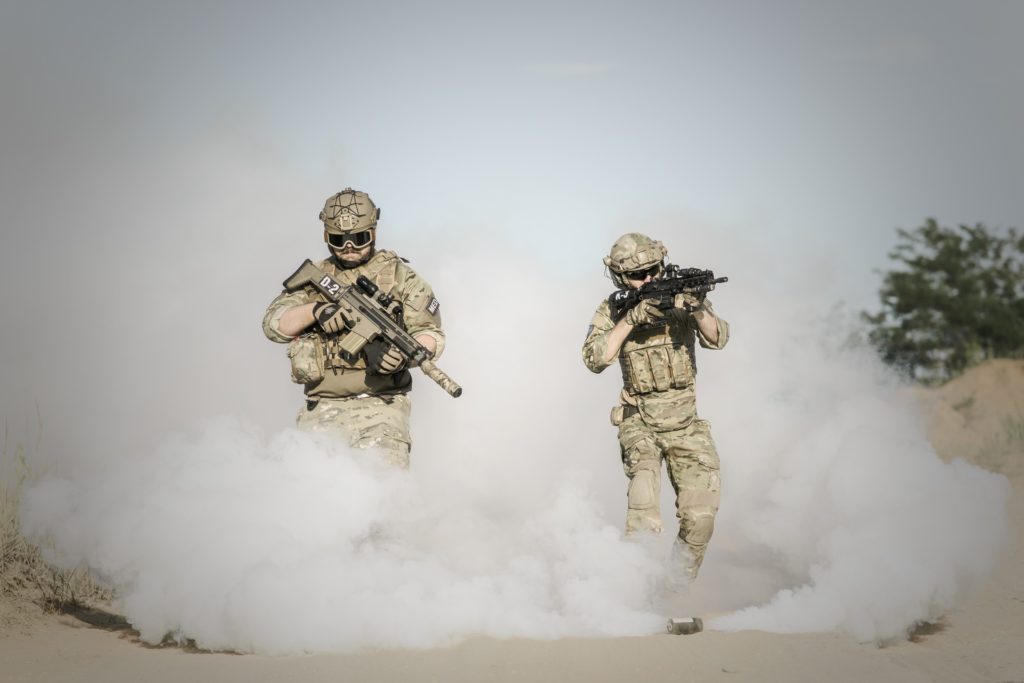
8The Bible begins and ends with a war. The classic “good vs. evil” narrative is the central storyline of God’s word.
Before George Lucas and Star Wars, we had God walking in the Garden of Eden and His nemesis, a serpent, waging war in the most epic “Good vs. Evil” story that the world has ever seen.
In fact, later in the Bible, the Apostle Paul refers to himself as a “soldier of Christ Jesus.” I say all of this so that you soldiers know that you are in good company.
Life, war, and evil are all messy things. Luckily, the Bible isn’t silent about what to do with trauma. Let me suggest three strategies to deal with PTSD for those who are coming home serving in the military:
1. Repent for any and all human evil that you participated in, saw or experienced.
Too many soldiers don’t ever talk about or acknowledge that they have experienced intense human suffering. 1 John 1:9 tells us that “if we confess our sins, He is faithful and just to forgive us and cleanse us from all unrighteousness.”
We need to actually speak about the evil that we’ve seen, done or experienced. Talking about this can be painful, but it’s the God given means of fighting the decay of a hard heart.
2. Find a PTSD support group.
So much healing happens in circles where vulnerable, broken, sad people share their pain, trauma and hurt together. The book of James says “Confess your sins to ONE ANOTHER so that you might be healed.”
Forgiveness comes from God alone, but healing is a community project. Find a group you can laugh with, cry with, share with and experience God’s grace.
3. Give back in a meaningful way.
 Part of your journey to becoming a full and vibrant human being is finding places where you can serve and help humanity flourish. War, conflict, and violence are not God’s ideal plan (he created a garden, not a military base.)
Part of your journey to becoming a full and vibrant human being is finding places where you can serve and help humanity flourish. War, conflict, and violence are not God’s ideal plan (he created a garden, not a military base.)
So, part of your recovery to health and wholeness is helping others find peace where you might have experienced trauma and pain. Find a ministry or a non-profit where you can serve others, and help them where, maybe, you wish you would’ve been helped.
Thank you for serving and may you find hope, health, and healing as you take your next step.
 About the Author:
About the Author:
Ryan Moffat is the teaching pastor at Vast Church in Sisters, OR and is currently working on his Masters in Theology at Western Seminary in Portland, OR
Ryan received his BS in Bible and Theology and a minor in counseling from Multnomah University. He has pastored students, families and is passionate about Christ-centered recovery and healing. He’s been married to his beautiful wife Michelle for 13 years and they enjoy raising four crazy, unique and special kids together.
The opinions and views of our guest contributors are shared to provide a broad perspective of addictions. These are not necessarily the views of Addiction Hope, but an effort to offer discussion of various issues by different concerned individuals.
We at Addiction Hope understand that addictions result from a combination of environmental and genetic factors. If you or a loved one are suffering from an addiction, please know that there is hope for you, and seek immediate professional help.
Published on October 7, 2017
Reviewed By: Jacquelyn Ekern, MS, LPC on October 7, 2017.
Published on AddictionHope.com
